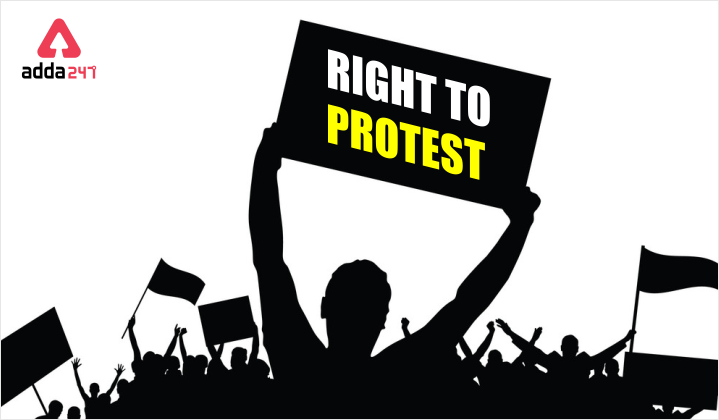Right to Protest
There are 6 fundamental rights provided by the constitution of India to every citizen. These fundamental rights are enjoyed by every citizen of India. They are an essential part of the constitution and if violated by anyone they can be punished by the court. The fundamental rights are the right to equality, the right to freedom, the right against exploitation, cultural and educational rights, and the right to freedom of religion. These fundamental rights have different articles and writing to protest also comes under these rights. The fundamental right of right to protest is protected under article 19 (1) (a), 19 (1) (b) and 19 (1) (c).
Fundamental Rights
These rights give the citizen the right to freedom of expression, the right to gather peacefully without weapons, and the right to found associations or trade unions. These three articles ensure that citizens can protest against the government or any organization on a national issue or issue related to social interest.
Right to protest: Types of protests
There are many policies that the government issues in the interest of citizens for their growth and improvement. These policies are monitored by citizens and if their policies are lacking and cannot be solved by peaceful demonstrations, citizens take the law into their hands and protest against the government. The protest majorly places an important role to correct the actions of the government which harm public peace. These protests can be of many types there are protests in which people sign petitions, some protests with strikes, some protests with large public meetings, and some create violence in the name of protest.
Right to protest: Restrictions
This is a fundamental right but if it is in a nonviolent form then the government can accept these protests, if the protests are violating the following norms then strict action can be taken on public-
- Protest is an acceptable exercise unless it damages and harms the security of the state.
- The friendly relations with neighboring countries are harmed
- Violation of public order
- Contempt of court
- The integrity and sovereignty are threatened
FAQs on the Right to Protest
1. What is the right to protest in the constitution?
Ans. The right to protest is under article 19(1) (a) article 19(1)(b) and Article 19(1)(c) which gives the citizen the right to freedom of expression and the right to meet peacefully without weapons and right to form associations or trade unions.
2. What is the right to protest in India?
Ans. The right to protest gives the citizen right to be publicly challenged and force the government to answer. It is a fundamental political right of the people.
3. What is protest?
Ans. It is a way of expressing objection to any action policy or statement by the government or any organization that wants to accuse a group of people of themselves.
Buy Prime Test Series for all Banking, SSC, Insurance & other exams




 Which District of Uttar Pradesh is known...
Which District of Uttar Pradesh is known...
 Which Mountain is known as the Stone Sen...
Which Mountain is known as the Stone Sen...
 Brazil Creates History! Lucas Pinheiro B...
Brazil Creates History! Lucas Pinheiro B...








